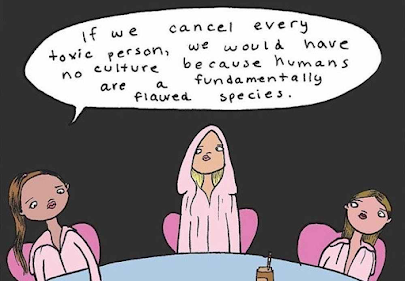Fantastic CoPs and Where to Find Them
- Get link
- X
- Other Apps
In my previous life, my previous me was a biologist working in a tox lab in a hospital in Paris. Part of my work was to facilitate training sessions for lab staff in a healthcare training center on how to develop complex lab techniques for various purposes.
While I've traded my lab coat for a computer and my lab techniques for learning theories and authoring tools, I keep facilitating those small group sessions in Paris several times a year. What I love about them is listening to the answers to my introduction questions: "Why are you here and what are you looking for?" Most participants answer that they want to fill knowledge gaps or they need concrete guidance for effective troubleshooting. Which makes me wonder: Why are they looking outside of their workplace for such needs? Don't they have onsite support in their lab or in the lab next to them?
The session goes on. I try to bring interactivity but it's not always easy because adult learners are often used to instructor and content-centered training. Overall, people enjoy these sessions (at least it's what they tell me ;-) ); and I think it's less because of me and more because I ask them to talk about their issues and ask them to share their experiences with others. What I see is people feeling relieved to see they're not alone in struggling with their problems. Even ephemeral communities of practice (CoP) like these seemed appreciated to connect people and generate collective knowledge.
One day, I was chatting with a group after class and I asked them: "These sessions can be useful but your job (our job because I was part of them) requires continuous development. Do you have support elsewhere and if so, where do you find it?" One of the technologists gave me an unexpected answer: "Well ... if we don't find the answer at work, we can always ask our Facebook group." "Your Facebook group?"
I did not see that coming. At that time, I did not view Facebook as an environment suited for professional purposes. The group gave me more information. Because most people have a Facebook account and know the features to communicate with each other, why not use it to find support among other lab technologists working in hospitals located in Paris great metropolitan area? Great initiative. People who might not meet each other in the offline world have gathered their force and creativity to further their professional development through an online CoP.
I've tried to join the FB group to see how it worked but I am still waiting for them to let me in. I might never be accepted because I'm a biologist so I might be seen as an intruder. In my view, heterogeneity is an asset and online spaces can be designed to both create private spaces for specific groups and encourage the production of content through global discussion threads. Thus, I wish this CoP is accepting "outsiders" and encourage diversity. Time will tell. Still, discovering this hidden CoP in my own professional environment was a happy surprise and I do hope my dear peers find support and answers while expanding the collective knowledge in the lab world.
I have no doubt other fantastic CoPs are hidden somewhere, online and probably offline, to bring support and recognition to those who cannot find them in their own workplace.
This makes me push the reflection further: is looking for external support a sign that our direct work environment has failed in its responsibility? Conversely, is it healthy to develop ourselves outside of and in addition to our direct professional sphere? Finally, should organizations be aware of the existence of these external, nonofficial CoPs, and should they leverage them when framing the development of their employees?
- Get link
- X
- Other Apps


Comments
Post a Comment